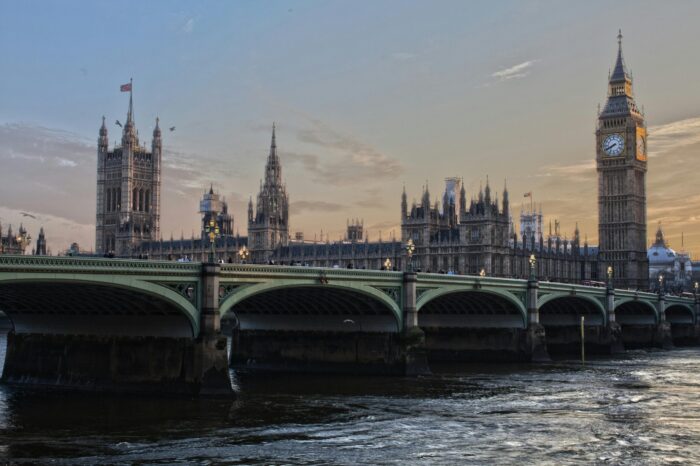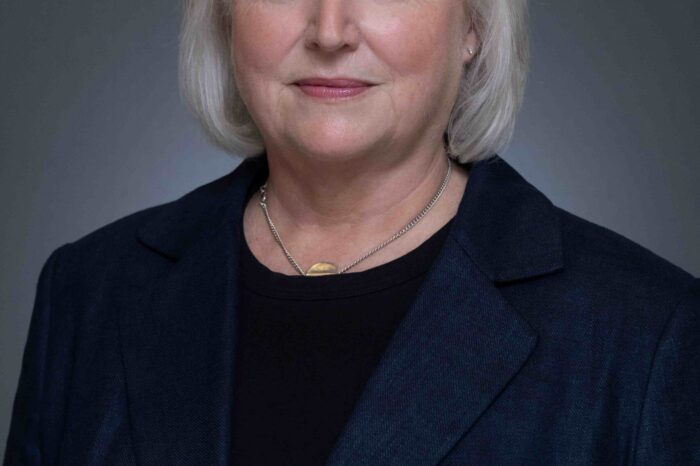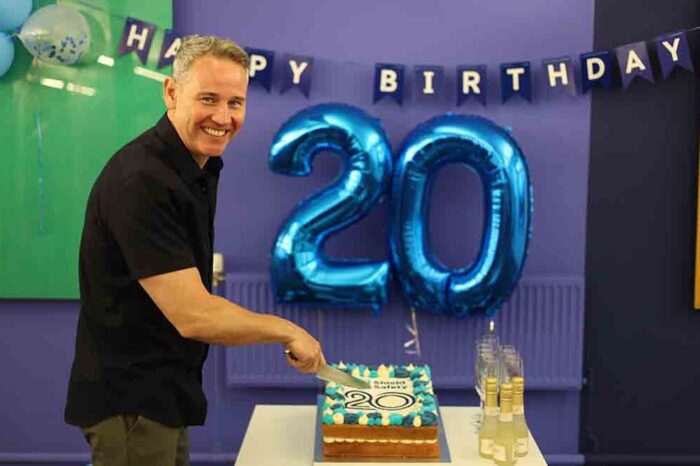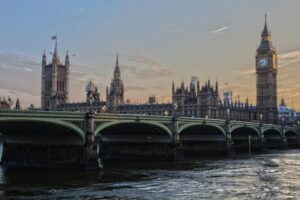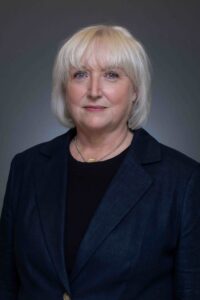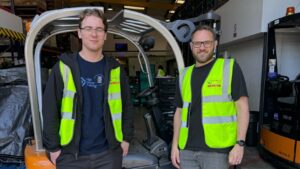SIDEMEN BRAND TO OPEN 10 NEW LOCATIONS ACROSS THE UK
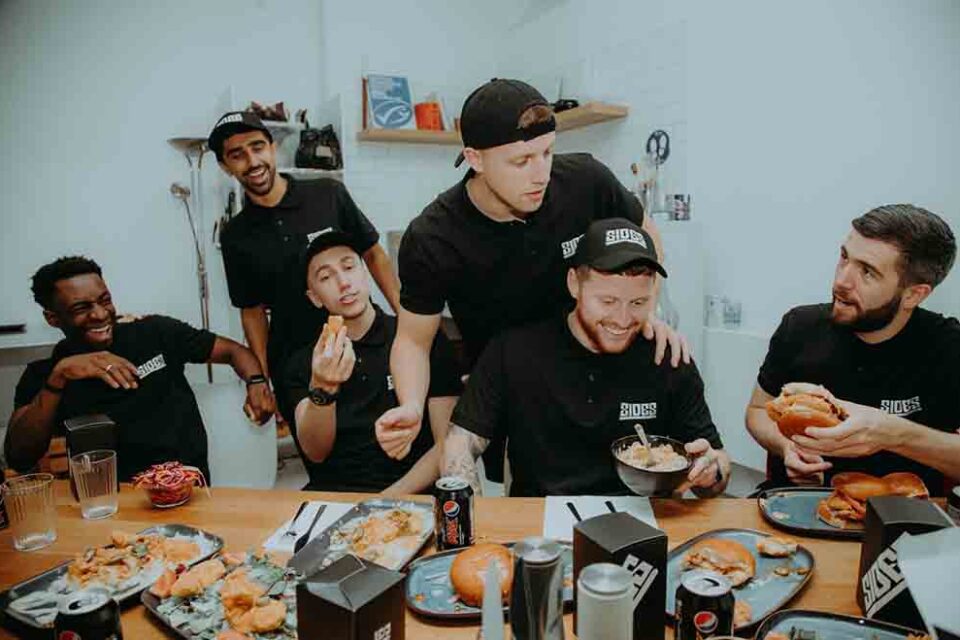
The Fried Chicken brand SIDES is on track to open ten locations in 2023, with the brand expanding its footprint into the North of England & Scotland.
The plans will see SIDES create 100 jobs across these new locations. The game-changing chicken brand, which is part of the Virtual Hero Group, has also revealed that it is set to open its first dine-in restaurant experience on the High Street this year.
Robin Mehta, CEO of SIDES said: “We are keen as a brand to keep evolving and our new high street restaurants will do that alongside furthering our reach in the UK as part of our larger growth target of 200 SIDES sites globally in the next 10 years.”
The fried chicken brand has been developed by the famous YouTube collective, The Sidemen, arguably the most popular and influential content creators in Europe.
The Sidemen started as seven YouTubers, who joined forces as a group in 2013. Since then, they’ve dominated the internet, creating an international audience of over 84.5 million dedicated YouTube subscribers to their channels, and a combined following of 36.4 million on Instagram.
SIDES is springboarding its growth through unique product innovation, including its most-recent offering, SIDES Hot Chicken. The Nashville-style chicken is dipped in paprika spiced oil with five increasing levels of heat.
The latest product joins spicy ketchup and corn ribs on the menu, with further food developments at SIDES including an improved chicken coating method.
The social media sensations will be continuing to add to the brick-and-mortar portfolio of SIDES with a launch onto the high street. These new locations will add an experiential element to the SIDES dining experience with interactive elements throughout and subtle nods to YouTube culture.
The flagship restaurants will be larger, with screening spaces alongside room for parties and launch events to make it a must-visit for any Sidemen fan.
SIDES is part of Virtual Hero, a subsidiary of the Hero Brands group behind the exploding fast-casual chain German Doner Kebab, Choppaluna, Island Poké, and XIX Vodka, a further Sidemen brand.
The fried chicken brand is currently available to order across the UK and the Middle East with many more to open globally by the end of 2023.
Josh Bradley (Zerkaa), The Sidemen, said: “The fans have been crying out for more SIDES locations, so we are excited to meet the fever pitch demand with more restaurants across the UK.
Our first ever high street store will be a special moment for all of us and we cannot wait for everyone to try them as they will be a real celebration of the Sidemen ahead of our ten year anniversary as a group.”
He added: “We are looking forward to fans visiting these new locations and trying our evolved menu offering, including our new SIDES Hot Chicken. Our take on Nashville-style chicken which has an unparalleled flavour and heat combination, it is a must-try.”
Robin Mehta commented: “At Virtual Hero, we are responding to emerging consumer trends and are looking to build an ecosystem of the brands of the future.
The Sidemen are representative of exciting and relevant British talent being at the forefront of new trends and the expansion of Sides shows that this collaborative concept not only works but thrives.”
Adding: “The virtual locations have allowed us to rapidly reach more people across the nation but we are thrilled to expand our brick-and-mortar offering this year. The high street restaurant is a fresh concept for creating a new form of engagement for fans.
Alongside our shopping centre locations, these additional brick-and-mortar restaurants will bring us to the focal point of communities. It will allow fans to be able to access an unrivalled Sidemen experience in their area alongside a new evolved menu offering.”
SIDES has already launched in Market Place Harrow this year, marking its third bricks-and-mortar restaurant in the UK. The restaurant at Market Place Harrow expands SIDES’ physical portfolio, as it follows its other brick-and-mortar restaurants in Wembley BOXPARK and Gravity Wandsworth.
As part of global growth, SIDES is set to add 200 physical and virtual locations to its portfolio in the next ten years. In addition, SIDES is also available for delivery via the major food delivery platforms Uber Eats and Deliveroo across key locations in the UK.

Ewan MacDonald Russell who is the Deputy Head of the SRC spoke to Business Connect saying: “I’d say on, if you look at the sales figures over the last four months, it’s been pretty flat but I say that with a caveat and huge caveat is with inflation.
Our real term sales figures have, have bounced around within a kind of decibel points, so sales have been very similar to last year.
What the big difference is, and what we’re worried about is we’re seeing this increase every month in food inflation and rising energy bills. The consequence to that is that customers have become very focused on only buying things when they really need them and of course is very difficult for some of the other sectors.”
David Lonsdale, Director of the SRC adds to Ewan’s comments saying: “Easter provided a slender but nonetheless welcome uplift to retail sales in Scotland last month. The real terms value of retail sales edged back into positive territory, after the decline witnessed in March, driven by health and beauty categories and as people spruced up their homes and gardens.
However, the figures reveal a continued and indeed more pronounced polarisation of performance between food and non-food categories. With households spending more on groceries due to elevated levels of inflation, the consequences of this can be seen with more discretionary spending areas losing out, with volumes declining.”
Paul Martin, UK head of retail at KPMG, commented: “As inflation continues to offset any true sales growth in Scotland, and the cost of living crisis continues to bite, the picture for the retail sector remains stagnant as we approach the summer months.
Some retailers are delivering growth and will be optimistic of their performance, although this is largely down to taking share from competitors through customer insights and innovation rather than any overall growth.
The challenge for retailers now is having to face into their own rising cost agenda, as inflation continues to challenge margins, whilst ensuring affordability, choice and value for customers.”
Another issue facing retail in Glasgow city centre is seeing formerly busy areas like Sauchiehall Street filled with buildings that are still boarded up after the businesses that occupied them were forced to close down. Recent analysis suggests that 36% of the shops, offices and domestic properties on Sauchiehall Street are currently lying vacant.
A notable example of this is the three storey BHS building which has been empty since closing in 2016.
Ewan MacDonald Russell told us how companies become more online based has played a factor.
He said: “The pandemic so accelerated something we knew was going to happen anyway; the rise of online businesses or the way that every retailer now was adapted to an omnichannel model where we’ve got stores using things like click and collect.
Retailers are still going to want to keep physical stores in a really attractive destination like Glasgow, where they know loads of shoppers are going to go. We know destination shopping will continue, that there is an experience about going to a great store, kind of finding the right items and doing that partly is a social thing.”
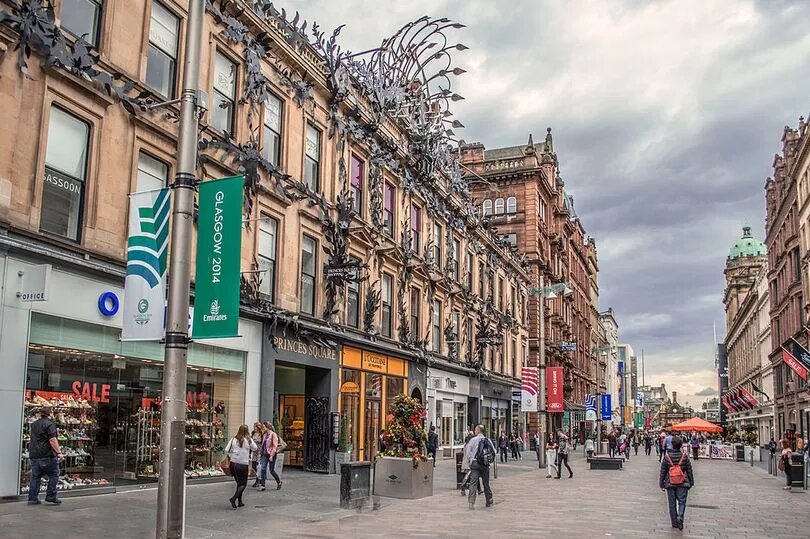
He added: “A trend we expect to see continue is businesses minimising the number of stores in the high street, focusing on one larger store and making it great. It’s all about where, where are the locations and giving customers good reasons to travel to them.
It’s going to open up space for independent or smaller stores to be able to get into retail units that were heavily priced before and now that there’s a bit less demand that might actually make it more affordable for a business.”
Stuart Patrick from the Glasgow Chamber of Commerce has commented in the past that he believe the downturn of the retail sector is not as bad as others think.
We asked Stuart to expand on these comments and he said: Retail will not disappear from the city centre. It is a fundamental part of the city centre and footfall has already recovered to around 90% of pre-pandemic levels.
Both investors and consumers say that retail will remain an important part of the reasons to visit the City Centre alongside hospitality, music and the arts. Retail is changing all across the country with more emphasis on the customer experience and we believe investors are already well advanced in making the changes Glasgow City Centre needs to meet those expectations.
Retail itself is also evolving, with brands like Nike and Apple using their shops to create quasi-event spaces for product launches, as opposed to the traditional unit to showcase products”
He went onto say: “The challenges for retail businesses remain severe despite the recovery of footfall. Staff costs, energy costs and the cost of retail goods have all rocketed making it much harder to make a profit.
We are optimistic about the longer term for retail in Glasgow City Centre and are working closely with the City Centre Task Force and Glasgow City Council, but appreciate that the next few months will remain very difficult.”
William Moriconi has been operating a successful jewellers in Glasgow’s St Enoch centre for 10 years and spoke to us about the changes he’s noticed in the city centre.
He said: “After the Covid, everything has changed. The market change, the retail sector change and lives have been changed. The retail market in the city centre has been particularly affected as people weren’t coming in for a year and a half as many of them were working from home.
In St Enoch there were all these little cafes doing lunches for offices which have completely disappeared because there no customers for months so they had no income coming in.
Obviously bigger companies knew how to survive because they were set up online but everyone was ultimately seeing less turnover due to less footfall.”
William did go onto say that he believes that while it’s taken a few years, things are gradually returning normal in the city centre.
However if inflation continues to offset sales, the retail sector will not be able to return to the levels of profitability it once was as long as the cost of living crisis continues.

